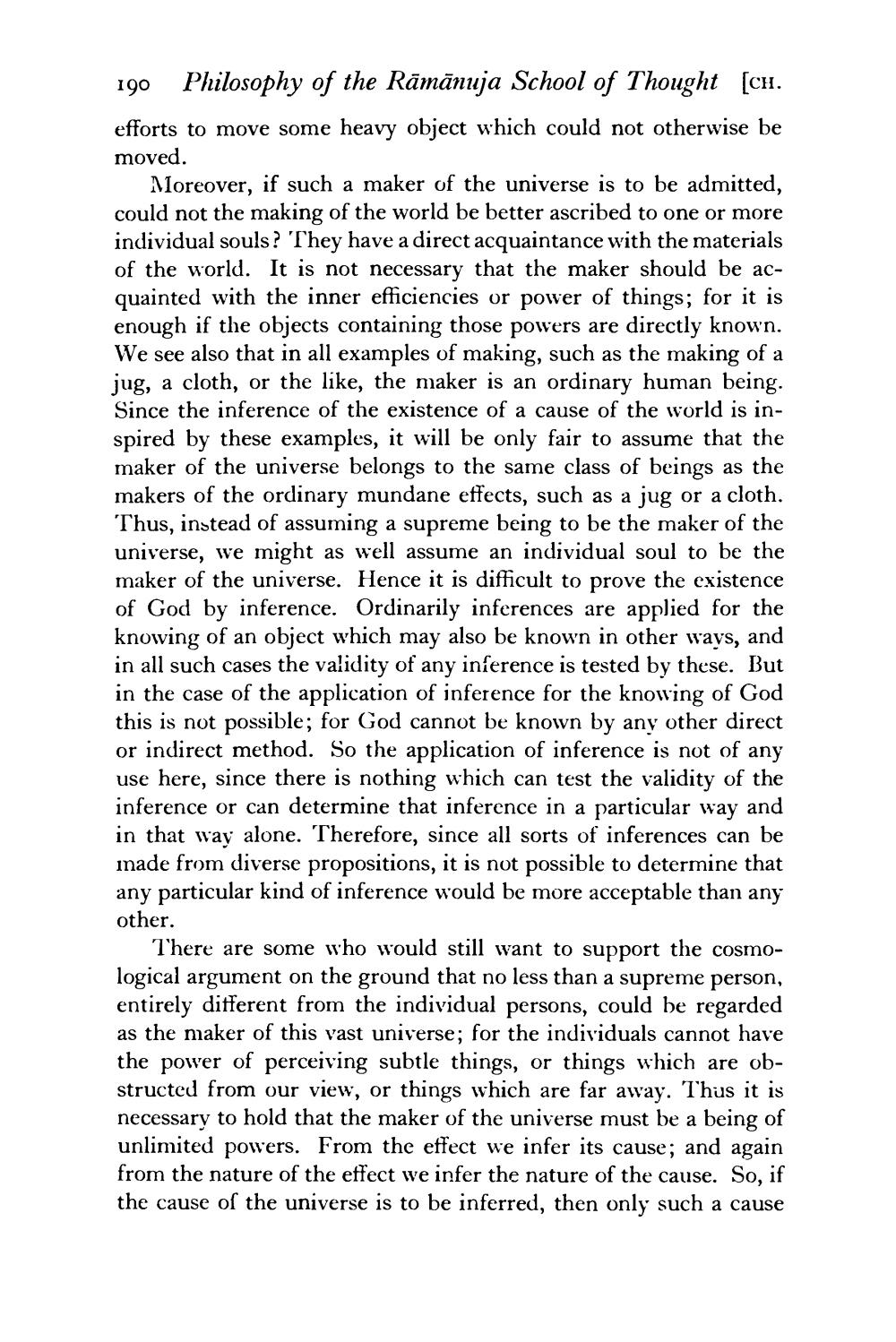________________
190 Philosophy of the Rāmānuja School of Thought [CH. efforts to move some heavy object which could not otherwise be moved.
Moreover, if such a maker of the universe is to be admitted, could not the making of the world be better ascribed to one or more individual souls? They have a direct acquaintance with the materials of the world. It is not necessary that the maker should be acquainted with the inner efficiencies or power of things; for it is enough if the objects containing those powers are directly known. We see also that in all examples of making, such as the making of a jug, a cloth, or the like, the maker is an ordinary human being. Since the inference of the existence of a cause of the world is inspired by these examples, it will be only fair to assume that the maker of the universe belongs to the same class of beings as the makers of the ordinary mundane effects, such as a jug or a cloth.
Thus, instead of assuming a supreme being to be the maker of the universe, we might as well assume an individual soul to be the maker of the universe. Hence it is difficult to prove the existence of God by inference. Ordinarily inferences are applied for the knowing of an object which may also be known in other ways, and in all such cases the validity of any inference is tested by these. But in the case of the application of inference for the knowing of God this is not possible; for God cannot be known by any other direct or indirect method. So the application of inference is not of any use here, since there is nothing which can test the validity of the inference or can determine that inference in a particular way and in that way alone. Therefore, since all sorts of inferences can be made from diverse propositions, it is not possible to determine that any particular kind of inference would be more acceptable than any other.
There are some who would still want to support the cosmological argument on the ground that no less than a supreme person, entirely different from the individual persons, could be regarded as the maker of this vast universe; for the individuals cannot have the power of perceiving subtle things, or things which are obstructed from our view, or things which are far away. Thus it is necessary to hold that the maker of the universe must be a being of unlimited powers. From the effect we infer its cause; and again from the nature of the effect we infer the nature of the cause. So, if the cause of the universe is to be inferred, then only such a cause




